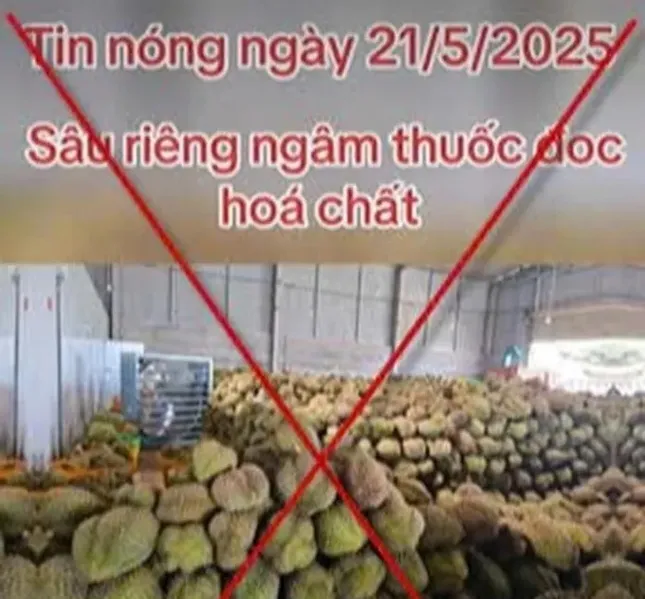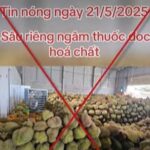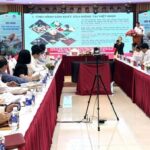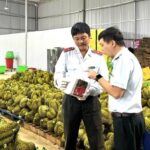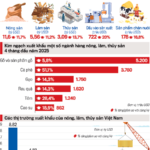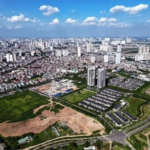Combating Fake News: A Necessary Step for Vietnam’s Durian Industry
In late May, social media was ablaze with a series of videos and images that spread like wildfire, capturing workers “dipping durians in chemical tanks.” Sensational headlines such as “Durian dipped in toxic chemicals before hitting the market” sparked fear and uncertainty among consumers.
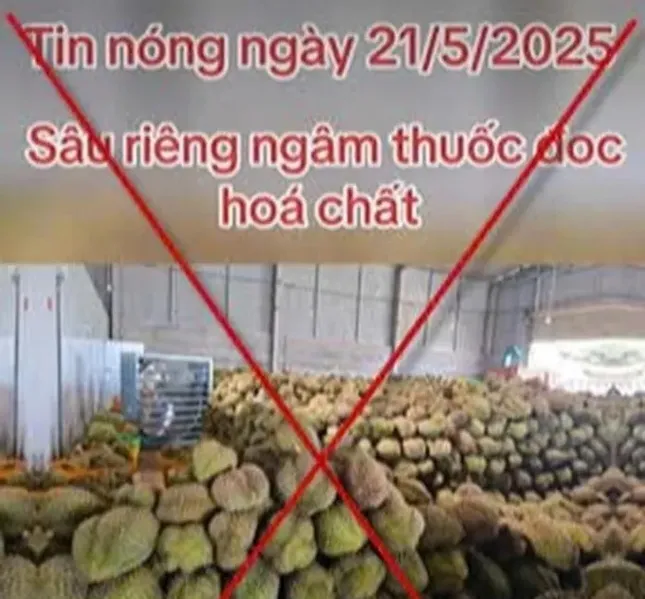
Misleading information about Durian being soaked in chemicals. Screenshot from the video.
The Agriculture and Environment Department of Dak Nong province quickly issued a statement clarifying that the videos and images were related to a violation that occurred back in 2017. A company in Gia Nghia city was penalized for using chemicals of unknown origin in durian processing and their products were destroyed. Since then, there have been no similar incidents, and the company has improved its production processes, achieving international food safety certifications such as HACCP and ISO 22000:2018.
The department emphasized that circulating old images with misleading new contexts severely damages the reputation of Vietnamese agricultural products, especially durian, which is gaining traction in the international market. They urged the public to refrain from sharing or interacting with unverified content and instead rely on official sources to stabilize the market and protect the reputation of Vietnamese agriculture.
Lawyer Nguyen Van Hau, Vice Chairman of the Ho Chi Minh City Bar Association, stated that spreading false information on social media, especially unverified content, can lead to administrative fines or even criminal liability depending on the severity of the violation. According to Decree No. 15/2020/ND-CP (amended by Decree 14/2022/ND-CP), those who provide or share fake news, slander individuals or organizations online can face administrative fines ranging from VND 10-20 million for organizations and VND 5-10 million for individuals. They will also be required to remove the offending content.
If the dissemination of misinformation has serious consequences, distorts the truth, incites public disorder, or severely affects the reputation of individuals or organizations, criminal liability may apply.
Strategic Development for a Key Agricultural Commodity
Durian is a highly promising export commodity, not just for the Chinese market but also for demanding markets like South Korea, Japan, and Europe. The Vietnam Fruit and Vegetable Association emphasizes the current sensitive period for the Vietnamese durian industry. While regaining its foothold in the Chinese market, the industry also faces intense competition from other Southeast Asian countries. Any misinformation can shake market confidence and severely impact the entire value chain, from farmers to exporters.
Instead of being swayed by baseless rumors, it is crucial to acknowledge the efforts of farmers, businesses, and authorities in ensuring product quality and safety. The government has been actively providing specific directives to support and address challenges faced by the durian industry. Notably, on May 31st, Prime Minister Pham Minh Chinh issued Dispatch No. 79/CD-TTg, instructing ministries to proactively implement measures to ensure the production, processing, and consumption of agricultural products, including durian. Earlier, on May 23rd, Deputy Prime Minister Tran Hong Ha signed Dispatch No. 71/CD-TTg on promoting sustainable durian exports.
Additionally, on May 28th, the Customs Department directed its subordinate units to prioritize customs clearance for agricultural products, especially durian, which is currently in peak harvest season and perishable. From May 27th to 29th, a delegation from the Ministry of Agriculture and Environment also worked directly with the General Administration of Customs of China to facilitate faster clearance for Vietnamese durian exports.
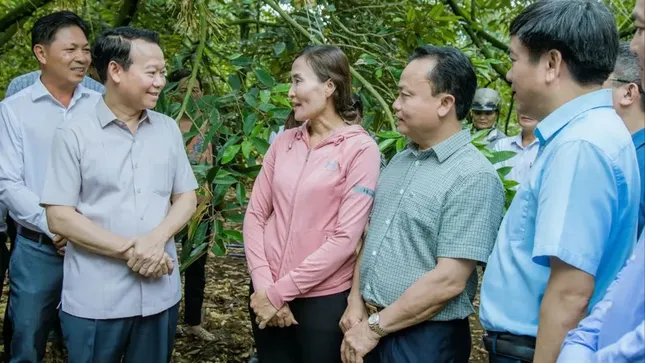
Minister Do Duc Duy (second from left) discussing with durian farmers in Dak Lak. Photo: N.N.
These swift and coordinated actions demonstrate the government’s recognition of durian as a strategic agricultural commodity, aiming to develop it into a national brand with a strong global presence in agricultural exports. However, to ensure the successful navigation of durian exports, it is essential to maintain and strengthen the trust of the domestic market.
“Durian from Dak Nong is considered one of the key products of the locality, not only in terms of volume but also quality,” affirmed a representative of the Vietnam Fruit and Vegetable Association. “Vietnamese durian is undergoing strict traceability, pesticide residue control, processing procedures, and transportation conditions by the authorities. Consumers should have faith in this strong industry of ours and refrain from believing baseless rumors that could tarnish its reputation.”
“Returning the Durian Industry to its Sustainable Production and Consumption ‘Orbit’”
The decline in durian export volume and value during the first five months of 2025 serves as a stark warning of the imbalance between the growth in production and the capacity to organize it effectively. It also highlights the gap between the increasingly demanding requirements of import markets and the ability of domestic production to keep pace.
Amidst US Tax Pressures, Agricultural and Aquatic Exports Continue to Flourish
Although the US tax policy has been exerting significant pressure, Vietnam’s agro-forestry-fishery exports in the first four months of 2025 still achieved a growth rate of over 10% compared to the same period last year.


























